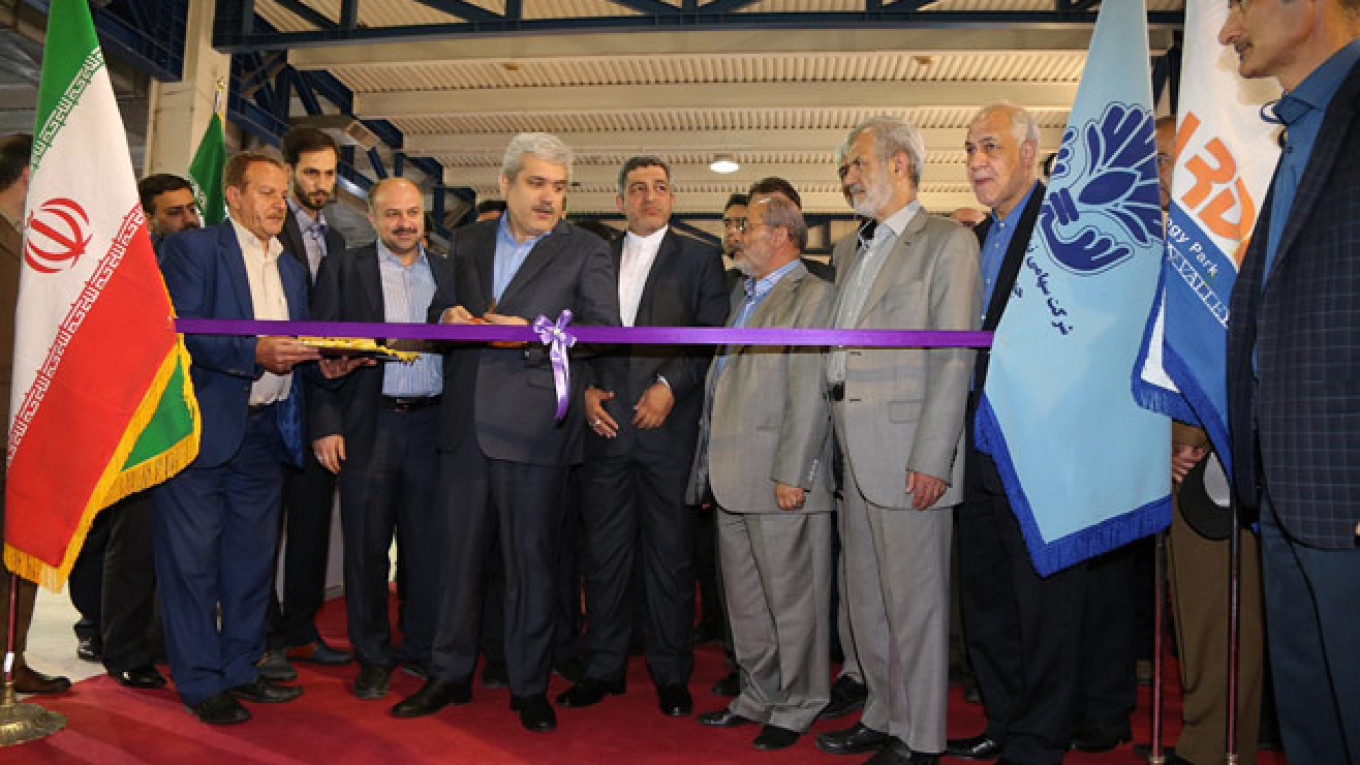Russia's biggest defense contractor, Almaz-Antey, said Thursday it had signed an agreement to promote Russian civil technology in Iran.
The move follows a breakthrough in negotiations over Iran's nuclear program that has sent companies from around the world hunting for opportunities in the Middle Eastern country in the hope that international sanctions on Tehran will be lifted.
Almaz-Antey has agreed with the Center for Innovation and Technology Cooperation, an advisory body to the Iranian government, to promote innovative non-military Russian products in Iran, the TASS news agency quoted the company's press service as saying.
The defense contractor, which was sanctioned last year by the U.S. and EU over Russia's role in the Ukraine crisis, will also help organize joint production of these products at Russian and Iranian factories.
Foreign investment in Iran has been obstructed over recent decades by a string of sanctions imposed by the United States, European Union, United Nations and others in an effort to prevent the country from developing nuclear weapons. Iran has maintained that its nuclear program is dedicated to civilian purposes.
Iran, the UN Security Council and the EU are expected to reach a deal on Iran's nuclear program by June 30, although negotiators have said they may miss the deadline.
Almaz-Antey, the world's largest missile maker, is also looking to sell military technology to Iran. Following a preliminary deal on Iran's nuclear program in April, Russian President Vladimir Putin canceled a freeze on the export of the company's S-300 missile defense systems to Iran.
Russian and Iranian officials have said they are negotiating the final terms for a delivery of the weapons systems, which would radically boost Iran's ability to repulse air attacks.
The possible end to economic sanctions has also seen executives from major global oil companies such as Shell and Eni appear in Tehran in recent days to discuss business plans, according to media reports.
A Message from The Moscow Times:
Dear readers,
We are facing unprecedented challenges. Russia's Prosecutor General's Office has designated The Moscow Times as an "undesirable" organization, criminalizing our work and putting our staff at risk of prosecution. This follows our earlier unjust labeling as a "foreign agent."
These actions are direct attempts to silence independent journalism in Russia. The authorities claim our work "discredits the decisions of the Russian leadership." We see things differently: we strive to provide accurate, unbiased reporting on Russia.
We, the journalists of The Moscow Times, refuse to be silenced. But to continue our work, we need your help.
Your support, no matter how small, makes a world of difference. If you can, please support us monthly starting from just $2. It's quick to set up, and every contribution makes a significant impact.
By supporting The Moscow Times, you're defending open, independent journalism in the face of repression. Thank you for standing with us.
Remind me later.






